“There is no hot water for about a month, but I don’t care anymore”: how my family and I moved to Romania
Miscellaneous / / September 03, 2023
There were no downsides. But the reality turned out to be more comfortable than we expected.
I am 34 and since January 2023 my family and I have been living in Bucharest. This is Romania. Why did we choose this particular country? The fact is that part of my family is from Romania, and therefore there was a good chance to get legalized. Me, my husband and little son - he is 1.5 years old.
Until January 2023, we lived in Moscow, both worked in the office. And then they left. I can’t say that it was unexpected, but rather quickly: we got together, closed the mortgage with the help of maternity capital and bought tickets.
I’ll tell you a little about what to expect from this country, which is not the most popular among relocators, and how build Here, family life is practically from scratch.
Expectations and reality
It was easier for us: there were no expectations, because we knew almost nothing about Romania. They could have done the paperwork here, and they did. The husband was worried that the situation might not be very calm, but it turned out not to be so.
I was a little worried about the fact that the Romanians are not very friendly. And also - that there will be difficulties with the language and we will feel here strangers. But the reality was comfortable.
Romanians are a little European, a little Soviet people, Bucharest is a little Moscow, only smaller.
I have lived all my life in Russia and feel exactly the same here. Adjusted for the language and the EU flag on the license plates.
The people here are unhurried, relaxed, quite understandable and kind. But hot climate does its job: when it’s +40 almost all summer, it’s quite difficult to force yourself to do something. And Romanians don't bother.
Life
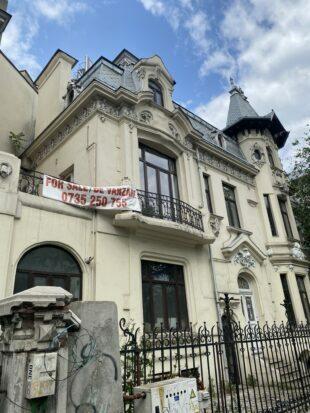
1 / 0
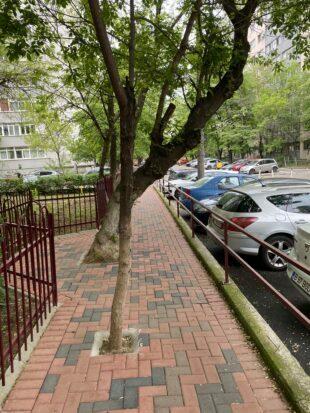
2 / 0
We rent a two-room apartment in a pleasant area of Bucharest with schools, hospitals, shops, cafes, parks - the whole package. And not very far from the center: 15-20 minutes by tram. We pay for an apartment 400 Euro per month, found it easily and quickly through the agency. It was necessary to pay a month in advance, a month of guarantee and 50% of the monthly cost to the realtor. This is normal practice. The apartment has furniture - though not very stylish and new, but definitely suitable for life.
Communal - another 100 euros for everything. This is expensive water. In Moscow, I just turned on the shower and sat, thinking. And the water flowed, flowed, flowed. The child was recruited full bath every day. This is not done here for three reasons. Firstly, the bill for a communal apartment will grow to 200–400 euros or more. Secondly, there is an eternal problem with hot water: it is simply turned off, because something is constantly being repaired.
And thirdly, am I in Europe or where - who is washing so much here? Are you Russians?
When the hot water was turned off for the first time in March for a week, I came to work and complained. To which my colleagues told me: "Welcome to Bucharest." It really is. For example, now there has been no hot water for about a month - but this does not bother me anymore. We warm the kettle, wash ourselves in cold or take a shower in the gym. No, seriously, I don't care anymore.
In our house, built in the times of the USSR, as in Russian sockets, elderly people and ordinary families live - in general, there are few young people. I think we will be looking for a fresher house in the same area in the near future.
Which reminds me every day that I'm still in Europe? People in helmets on bicycles, elderly Romanians on benches with a bottle of Schweppes, Lidl and Carrefour stores, many establishments closed on Sunday, the opportunity to buy an inexpensive European car. Opel, Volkswagen, Renault for 1,000–1,500 euros is a reality.
Job
I work in HR and found a job pretty quickly. I sent out my resume and got a job at a small recruiting agency that brings workers from Asia to Romania. In the office, I speak only English, although I already know Romanian quite well.
In general, knowing English, you can live and work here. In incomprehensible situations, he will save everyone "Google Translate».
How to look for a job? If not through acquaintances, which is good everywhere, then through Facebook *, which is mega-popular here. You join profile groups and write to people there and tell about yourself. Other options are sites like olx (Avito in Romanian) and LinkedIn. I strongly advise everyone who wants to move anywhere west of Moscow to develop and fill out a profile on the latest social network.
And not to apply through LinkedIn, but to find out what are vacancieswho works in a particular company, and then search through the Internet and social networks for the contacts of these people. I think that applying is a waste of time: for every decent vacancy, there are 100 or more responses.
Find better HR contacts (I tell you as HR) and write how happy you are to contact him and how you dreamed of working at Microsoft in Bucharest.
Be prepared to send many, many emails.
Salaries here are higher than in Moscow. The minimum amount after taxes is about 400 euros for a full day. And this is for unskilled labor - cleaners or deliveries get so much. In a corporate, especially foreign environment - from 700 euros with minimal start-up experience and a good package in the form of medical insurance, subscription in World Class, travel allowance, gas, subscription to an online library or streaming service, and the like.
A salary of 1,000–1,500 euros can be earned by an employee with 3–5 years of experience or more. I'm talking about my industry, as well as, for example, marketing, finance and banking, PR. In IT, of course, it is higher. By the way, there are no more IT vacancies in Bucharest, but in Cluj-Napoca - a more western and advanced, although outwardly more medieval city of Romania.
People

1 / 0
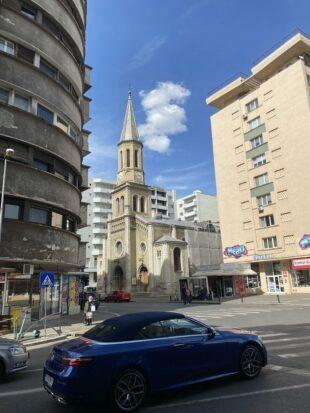
2 / 0
Romanians are very religious, but, fortunately, they do not impose their position. I was once asked at work what I was religions. I said, "None." The question was not raised again and no one congratulated me on the holidays. The boss in the chat wrote a classic about the resurrected Jesus at Easter, no one answered him.
Although the calendar has a huge number of Orthodox holidays that are officially days off. And it can be not one, but 3-4 days in a row. On Easter and Christmas, which is celebrated here on December 25, a week of holidays is provided - these are the biggest holidays of the year.
What about sports? There are fitness clubs here - from economy to premium. There is Pilates, some yoga, kayaking, rowing and CrossFit. Lots of joggers in the parks. And next to the playground - horizontal bars, teenagers come there to swing and hang out.
But in general it cannot be said that Romanians very athletic. It’s rather a lazy south here: new wine, a hot carpet and long vacations for the whole country in August before the new school year - which does not start on September 1, but on September 10-11 - as you’re lucky. My world with the annual September 1 and the ruler in the past!
The way of life and work of Romanians takes some getting used to.
If they said they would, then you have to wait. If you remind three times, maybe you will get an answer. Five times - maybe there will be a result in two months. There is even an anecdote on this subject - and the locals told it to me, if anything! How many Romanians does it take to screw in a light bulb? Five: one holds the bulb, four turn it.
What I like: people here are not tense, not heavy, not fussy. They are a bit Italian in that sense. Apparently, it’s not for nothing that many people have real estate in Italy, and they regularly go there on vacation to enjoy espresso, wine and gelato. By the way, there are a lot of Alfa Romeo cars on the roads.
In Romanians, there is absolutely no stamp of suffering, pain and fear of being misunderstood. They say what they don't like, add "that's their opinion," express dissatisfaction rather than contain it. They recognize their imperfection, the right to say "I'm tired today, let's go tomorrow" and humanity - in an anxious and running Moscow I've learned how to do it.
They go everywhere with small children - excessively small: a week, two years old. They ride with them on the bus - why? It's probably "their opinion". As a mother, it seems to me that it makes no sense to start testing the baby's immunity so early. However, children here are energetic, positive, free, just like adults.
I noticed that children on playgrounds and in parks are constantly praise: rolled down the hill - bravo, climbed onto the swing - bravo, carries a scoop to mom - bravo! So they say - it's kind of like "well done." Moreover, they clearly pronounce "o" at the end of the word - this is the rule of the language.
Documentation
Romania has been a member of the European Union since 2007. This means that we can live, work and study in any EU country and many other countries on a simplified basis.
It will take a long time to arrange everything, but it is real, including without intermediaries. I myself collected the documents of Romanian relatives in the archives, translated and certified them at notaries, put apostilles, filed with the Romanian embassy in Moscow. I also had interviews in Romanian and received documents to enter the country. Romania requires a national visa (or a valid Schengen visa).
In general, the paperwork took about four years, but the final is worth it. I can't believe I'm writing this from Bucharest!
It will take several months to make any document in Romania itself - there are no specific deadlines. Everything can drag on for another couple of months, so call and find out. And it’s better to come right away - to the registry office, the migration service and other organizations. Employees here are reluctant to answer calls.
As part of my job, I deal with the issuance of work visas and permits for foreigners. And what I want to say: if there are no "roots", but there are desire to live in Europe, getting a work visa and finding an employer is quite realistic. It just seems that it is difficult for a foreigner to get a job.
You ask: why bother so much? Well, for example, there is a cool warm climate here, the sea is 2 hours away, and the mountains are 3 hours away. Everyone in Romania speaks English, here you can drive with a Russian license, and the prices are lower than in Western Europe. And after working for eight years, you can apply for European citizenship.
conclusions
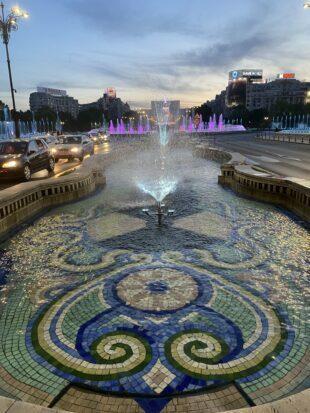
1 / 0
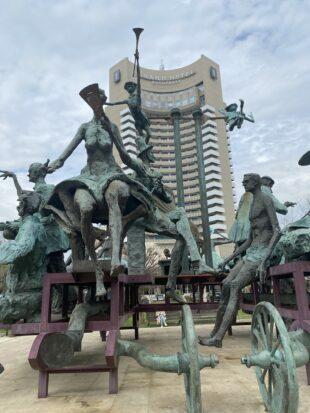
2 / 0
We have chosen a country and created the reality in which we live. Romania is an excellent intermediate and medium-term option. I think if we immediately moved to conditional Denmark, it would be more difficult to adapt. I would feel less comfortable there. I am silent already about the difficulties with apartments and kindergartens, about the long waits for registration with the migration service and other bodies in Germany. About the cost of everything in the world Scandinavia and so on.
I do not have a clear answer to the question: “Where to next?” While I lived where I was born, it seemed that somewhere it was definitely super, that there was an unambiguous answer to the question: “Well, how is it there? Fine?" But the truth is, as boring as it sounds, there are pros and cons to everything.
In practice, fortunately, it also turned out that I do not have the psychological problems of an emigrant. Firstly, Romania is still Eastern Europe, and there is no strong shock when moving. Secondly, I do not experience language problems: everyone speaks English, and every day I learn Romanian better and better. Thirdly, I think I still adapt well.
And my advice to anyone who decides move: turn on your adaptive abilities to the maximum, not criticizing everything and everyone in the new country, but trying to understand and accept the life that is familiar to the locals and radically new to you.
*Activities of Meta Platforms Inc. and its social networks Facebook and Instagram are prohibited in the territory of the Russian Federation.
Read also🧳
- Take can not be left: what things to take with you when moving abroad
- “It was scary...” How we moved to Vietnam without IT salaries
- What you need to know about repatriation for those who want to leave Russia



